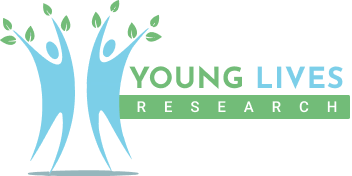New Journey to Save Fish: Oshki Maadaadiziwin Jaa Bimaaji'ut Gigooyike
This Partnership Engage project funded by the Social Sciences, Humanities and Research Council of Canada (SSHRC) and led by Postdoctoral fellow, Dr. James Stinson, will facilitate new partnerships between York University’s Young Lives Research Lab, the Dahdaleh Institute of Global Health Research, and the Bagida’waad Alliance of the Saugeen Ojibway Nation (SON).
This partnership will assist fishing families of the Saugeen Ojibwe Nation (SON) in documenting, understanding, and adapting to climate change on the Bruce Peninsula. For the last eight years, SON commercial fishers have observed that higher winds, severe storms, and warmer temperatures are creating dangerous fishing conditions and negatively affecting populations of lake whitefish on Lake Huron and Georgian Bay. In response, they are taking steps to document the changes they have been observing and to adapt to the changing climate. The Bagida’waad Alliance, a registered not-for-profit corporation, was founded by fishing families of the Saugeen First Nation and Chippewas of Nawash in March 2018. The goals of the organization are to research and educate about how climate change is affecting the waters and environment of Lake Huron and Georgian Bay, encourage their youth to document the stories of the Elders, and to participate in more active stewardship of the lands and waters.
Overall goals
The overarching goal of this Partnership is to generate and mobilize knowledge with/for/by Indigenous youth regarding conceptions of, and responses, to climate change. In doing this, the partnership will support the Bagida’waad Alliance in the completion of the project New Journey to Save Fish: Oshki Maadaadiziwin Jaa Bimaaji’ut Gigooyike, which involves Indigenous youth interviewing Elders to document and compile stories about environment, health, and climate change. The end result will be a series of short, youth-produced documentary films.
Specific Objectives:
1. Providing training for Indigenous youth on how documentary film can be used as an influential communications and advocacy tool.
2. Training for Indigenous youth in the production of digital film and GIS mapping.
3. Facilitating dialogue and knowledge exchange between Indigenous Youth and Elders
4. Generating knowledge with/for/by Indigenous youth about Indigenous conceptions of, and responses to, climate change.
5. Mobilizing knowledge generated through this research to inform the general public, academics, and policymakers about how SON fishing families are being impacted by, and are responding to, climate change on Lake Huron and Georgian Bay.
The project will take place through three phases: 1) training for Indigenous youth in digital film production; 2) Data collection and knowledge creation with/for/by Indigenous youth through the production of documentary films on Indigenous conceptions of and responses to climate change; 3) Knowledge mobilization of project results through community gatherings and events*, scholarly conferences, social media, and the the UN’s Youth Climate Report.
